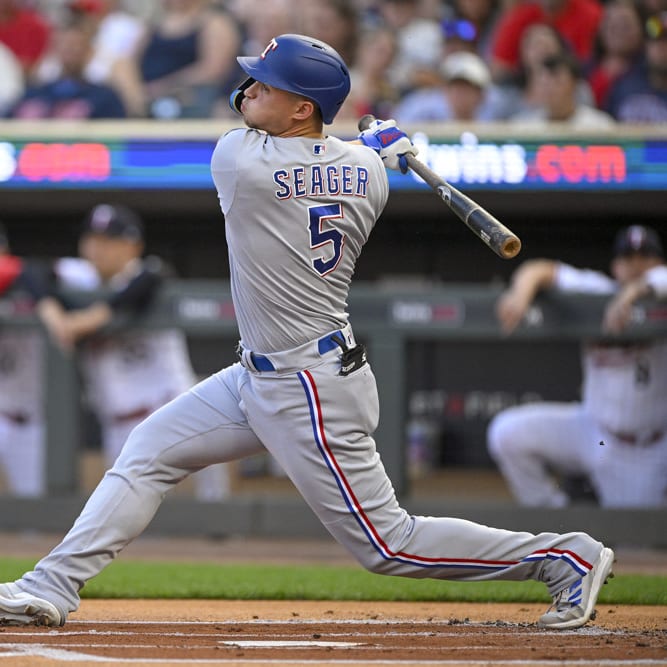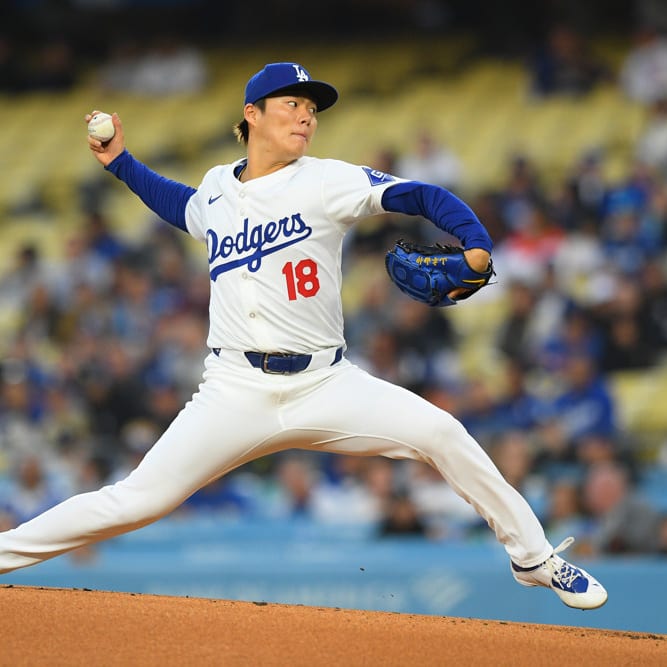This article is part of our The Z Files series.
It's a brave new world. The level of information at our fingertips is astounding. Forget about waiting for statistics to update overnight, we now know the type, velocity, and spin rate of every pitch. If there is contact, we know the exit velocity, launch angle and outcome probability.
The natural repercussion is for fantasy enthusiasts' desire to be at the cutting edge of analysis and gameplay, even at the expense of Occam's razor. It's become cliché, and it's being ignored. Most of this stuff is still more descriptive than predictive. But it's out there, and oh so tempting.
If you don't pick him up, someone else will.
A guy's velocity is up two ticks from his last start, and he used his slider more. Sure, he's been meh for the past couple of seasons, but he looks like a new guy. Grab him; maybe he can help offset losing Gerrit Cole or Spencer Strider.
A hitter's HardHit% is up, and he's set a new maximum exit velocity. So what if he's still striking out a lot; when he hits the ball, he's doing damage.
To be honest, this could be a me problem. Maybe you all have it right, but my DNA isn't wired to follow suit. Perhaps my scientific training has ingrained principles detrimental to succeeding in today's fantasy baseball landscape.
There's a fine line between wanting more evidence and you're not going to win without making the move, so why not take the chance?
This dichotomy is
It's a brave new world. The level of information at our fingertips is astounding. Forget about waiting for statistics to update overnight, we now know the type, velocity, and spin rate of every pitch. If there is contact, we know the exit velocity, launch angle and outcome probability.
The natural repercussion is for fantasy enthusiasts' desire to be at the cutting edge of analysis and gameplay, even at the expense of Occam's razor. It's become cliché, and it's being ignored. Most of this stuff is still more descriptive than predictive. But it's out there, and oh so tempting.
If you don't pick him up, someone else will.
A guy's velocity is up two ticks from his last start, and he used his slider more. Sure, he's been meh for the past couple of seasons, but he looks like a new guy. Grab him; maybe he can help offset losing Gerrit Cole or Spencer Strider.
A hitter's HardHit% is up, and he's set a new maximum exit velocity. So what if he's still striking out a lot; when he hits the ball, he's doing damage.
To be honest, this could be a me problem. Maybe you all have it right, but my DNA isn't wired to follow suit. Perhaps my scientific training has ingrained principles detrimental to succeeding in today's fantasy baseball landscape.
There's a fine line between wanting more evidence and you're not going to win without making the move, so why not take the chance?
This dichotomy is why I prefer cash game DFS play over GPP action and why I limit my betting, be it team related or player props to only those for which I am most confident, even if it means just one or two per slate. It's also why I am terrible at poker. If Zola raises, he must have the nuts.
Staying with the poker analogy, my weakness was never taking the time to learn the probability of each hand. How many outs do I have? What are the chances I'm holding the best hand? I never took the time to learn the odds. It's not that I wasn't capable, and it's not that I'm lazy either. To be honest, I'm not sure why I was never motivated. Understanding the odds would have improved my play. If by my estimation, I had a greater than 50 percent to take down the hand, I would bid more aggressively. If I wasn't sure, I'd try to hang around until I had a better read. After gaining some experience, I'd learn to – dare I say it – bluff.
Taking down a DFS GPP often entails lineup differentiation. A common play is fading a player with a high probability of recording a good game. On the off chance he doesn't, those without the player has a big advantage over the field. On the flip side, many winning GPP lineups have a player with low odds of success, but if he surprises, those taking the chance benefit.
I understand this approach, but I have trouble incorporating it. This isn't a great analogy, as blowing up a lab is different than losing a few bucks, but as a chemist I wasn't combining the contents of two test tube unless I was sure it was safe.
Be it building a DFS roster, or drafting a traditional fantasy team, I prefer the safe route. The same goes for in-season lineup management, though I may be more aggressive with pitching than others. Right or wrong, I'm more trusting of the hurler I am deploying.
I do my best to keep up with the next level analysis, but even now there is very little that's demonstrated to be predictive. Incorporating it may feel intuitive, but it's still a leap of faith, bringing us back to the Catch-22: if you don't take a chance on the unknown, someone else will.
Some of the decisions other make described earlier weren't just a gut call, or a contrarian game theory tactic. Some are based on the interpretation of data. I just stated my aggressive pitching management is due to believing in the pitcher. In what am I believing?
It's one of two things; track record, or an expectation of improvement based on a larger sample, usually emanating from the previous season when the pitcher exhibited better skills than indicated by their outcomes. This has won me a few leagues but lost me oodles more.
This all encompasses the descriptive versus predictive paradox. Sure, some team management is because, "If I don't someone else will." Nowadays, we're all looking for the predictive indicators, with many instilling the false assumption that something that occurred is fact, and thus actionable.
Perhaps the best example of this is the concept of stabilizations points. I've written ranted about this for years.
For those unaware, a stabilization point is the time needed for the luck versus skill aspect of the metric to be 50/50. Back when this was first introduced, I thought I discovered the Holy Grail to rest-of-season projections. Let's say the stabilization point of a particular metric is 100 plate appearances. My interpretation was after 100 plate appearances we could average the current level with the projected level to derive the rest-of-season level. Averaging reflects the 50/50 nature of the sample. Since I distill all my projections to skills, then translate to production, I broke the code. All I needed to do is write Excel code to regress each skill based on their respective stability points.
Not so fast, Skippy. I wasn't the only one doing this, or something similar, but when I read some articles explaining this was a misapplication of the data, it felt like it was directed at me.
The key point is while the luck/skill ratio is equal within the stability point, it doesn't mean it will be the same in the next 100 plate appearances or overlapping 100 plate appearance samples (to stay with the previous example). Whatever contributes to the luck/skill paradigm fleshes out after 100 plate appearances but may not be the same in the ensuing 100 plate appearances.
Even though we're at the point where the internet has as many, if not more, pieces debunking the use of stability points as it does describing them, too many are preaching the utilization for which I was outed... or felt like I was outed.
I don't have the answers. I'm not even sure of the question. Maybe it's, why aren't I a better fantasy baseball player? I spent a lot of years in my youth trying to be someone I wasn't. In my early 20s, I made a promise that I'd be myself, and I'm kinda happy with how that has turned out.
Except maybe being myself has hurt me as a fantasy team manager.
It could be worse. At least I wasn't asked to join a fledgling poker site in 1997.










